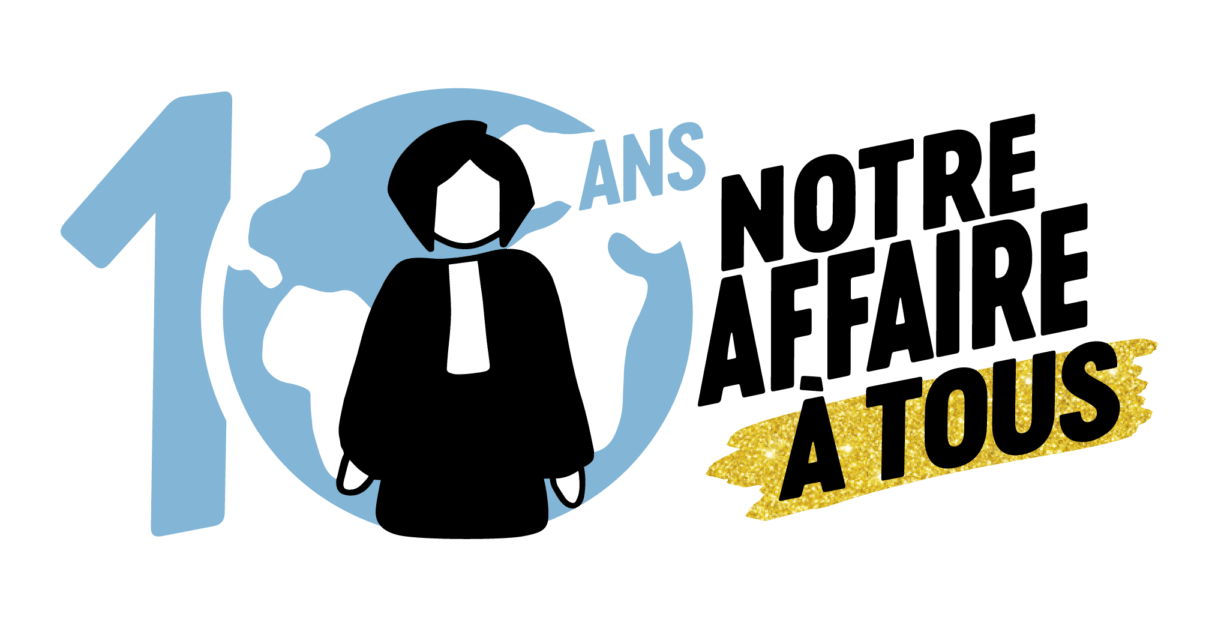Press release – January 14, 2021

« By not complying with its climate objective, France is at fault, and the State should be held responsible for that. » It is essentially what Amélie Fort-Besnard, rapporteur public [1] for the Paris Administrative Court, has declared today during the Case of the Century hearing.
More than two years after the beginning of the procedure initiated in December 2018 by Notre Affaire à Tous, the Nicolas Hulot Foundation, Greenpeace France, and Oxfam France, this unprecedented Case against the State’s climate inaction could lead to a historic victory. In two weeks, the court should issue the decision.
For the organisations party to the Case of the Century: « If the court follows its rapporteur public’s conclusions, the French State’s responsibility in climate change, due to its insufficient action, would be recognised. It would be a historic step forward in French law and a significant victory for climate and the protection of each and everyone from the consequences of climate change. Every climate change victim will then be able to rely on this case law to defend their rights and obtain reparation. Consequently, the State would be under high pressure to finally implement necessary measures to limit global warming to 1,5°C. »
The rapporteur public considers that the State is indeed at fault, thereby engaging its responsibility, by not taking all of the necessary measures to respect France’s commitments to reduce greenhouse gas emissions. She specifies that the State itself introduced the current climate trajectory as the one that would allow it to respect its national objectives and international commitments in terms of climate. The rapporteur public advised the court to sentence the State to pay the NGO the symbolic sum of 1 euro in reparation for the moral prejudice caused, which the associations were asking.
The Case of the Century also demands that the court orders the State to take additional measures for the climate to fulfill its commitments. On this point, the rapporteur public does not yet set aside an injunction but advises the court to reserve its decision for later, in order to allow the NGOs and the State to discuss the reality of the State’s action in regards to climate change, as well as to wait for the French Council of State’s decision in the Grande Synthe case [2].
Finally, the rapporteur public suggests that the court should recognise ecological prejudice in the administrative courts, whereas only the judicial courts used ecological prejudice until now. The recognition of the ecological prejudice in the administrative courts would mark significant progress for environmental law. Such a decision would also allow better inclusion of Nature in the law. The rapporteur public made the point that a public entity, similarly to a private individual, could be held responsible for directly causing damage to the environment. Lastly, she suggests that climate change causes such damage and that the State is in part responsible.
The inadequacy of the State’s action in addressing the climate crisis has now been outlined, proven, and pointed out from all sides. The draft legislation derived from the Citizen Climate Convention, which will be debated next March in Parliament, is, even as the State admits, not enough to fulfill its climate objectives [3]. The ball is now in the government’s court to finally review its draft and take ambitious and necessary measures to fight climate change.
Note to editors
[1] Rapporteur public: independent magistrate who submits a complete analysis of existing legislation to guide the court’s decision and make the law evolve if necessary.
[2] Following the court investigation’s closure, the State has filed two briefs on the injunction to act, to which the lawyers and the NGOs’ lawyers have not had access previous to the hearing on the 14th January. This delay would allow for adversarial debate.
[3] An assessment study commissioned by the government shows that the law will only take us halfway or a third of the way to where we need to be.
Press contacts:
Notre Affaire à Tous : Cécilia Rinaudo – 06 86 41 71 81 – cecilia@notreaffaireatous.org
Fondation Nicolas Hulot : Paula Torrente – 07 87 50 74 90 – p.torrente@fnh.org
Greenpeace France : Kim Dallet – 06 33 58 39 46 – kim.dallet@greenpeace.org
Oxfam France : Marion Cosperec – 07 68 30 06 17 – mcosperec@oxfamfrance.org

